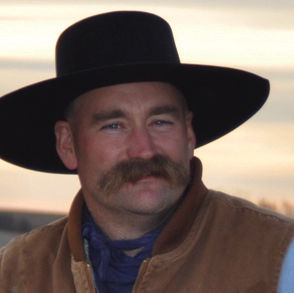‘Pipeline to nowhere’

The “CO2 Pipeline to Nowhere” is now at a crossroads; in fact, it feels a bit strange to be on the winning end of so many rulings. Right out the chute it is worth letting you know that not one single permit has been granted to the carbon dioxide pipeline project. Let’s walk through the timeline of “denied” rulings that have occurred.
The first small victory came with the North Dakota Public Service Commission:
“Given they declined to strike down the Minnehaha ordinance, I see no reason why they would change that decision,” said Brian Jorde, an attorney who represents more than 100 landowners affected by the pipeline projects in multiple states. “It would be wise for Summit to either pull its application or state they are suspending their request for application—which they can do at any time—until they come up with a route that can comply with all applicable laws and ordinances.”
Here are some recent developments:
“Aug. 4 (Reuters)—The North Dakota Public Service Commission on Friday rejected a permit application from Iowa-based Summit Carbon Solutions to run 320 miles (514.99 km) of pipeline through the state to transport captured carbon dioxide from ethanol plants to an underground storage site.”
Four days later (Aug. 8), this was released from the State of Illinois:
“SANGAMON CO. (WAND)—Sangamon County is putting the brakes on a proposed carbon dioxide pipeline that would run through farms and neighborhoods in the county. Heartland Greenway has proposed its Navigator Pipeline to transport CO2 from ethanol and fertilizer plants—from across the Midwest—and inject it underground in Sangamon and Montgomery Counties.”
I might mention that this is vitally important because the best path to the Southern Illinois CO2 injection sites is through Sangamon County, Illinois. The last week of August I was fortunate enough to visit with folks at the Farm Progress Show that live in Christian County, Illinois, where the proposed injection sites are located. They are extremely happy with that decision.
That takes us to Aug. 31, when the Oliver County, North Dakota Planning and Zoning Committee denied a Summit permit to place three CO2 injection wells in Oliver County.
On Sept. 5, Summit Carbon Solutions actually pulled the application for a permit from the agenda of the commissioners’ meeting.
Later that same day, the South Dakota Public Utilities Commission denied the permit for a Navigator CO2 pipeline because Navigator refused to share the information they had on the “kill zone” of the pipeline that they had access to. It is actually called a risk analysis study but the truth of the matter is that the kill zone from a pipeline rupture extends to at least 1.8 miles from the pipeline itself.
All of that leads to the announcement on Sept. 8, from the lead staff attorney for the South Dakota Public Utilities Commission who formally requested that the commission deny the application from SCS Carbon Solutions for a state permit for a proposed carbon-dioxide pipeline.
“It is an undisputable fact that the proposed route currently violates county ordinances in Brown, McPherson, Minnehaha, and Spink counties. Unless and until Summit can obtain waivers or conditional use permits where applicable in order to bring the route into compliance, a permit cannot be granted,” Edwards stated in the motion.
Finally, on Sept. 11, South Dakota utility regulators denied a permit application from Summit Carbon Solutions meaning that both carbon pipelines proposed in eastern South Dakota have been rejected in their first attempt to gain permits.
In addition to all that information I have been forwarded three letters from different insurance companies that tell policy holders that if they have a CO2 pipeline on their property, the risk of exposure is too great for the company to insure them. The three companies that have weighed in on this in the Dakotas have not minced words in telling policy holders they will no longer cover their operations and property.
At the end of the day, the truth is becoming evident to everyone regarding the dangers of compressing CO2 to 2300 psi in a pipeline that currently has nowhere to go. This is not a time to be complacent or stop being vocal about the dangers of a CO2 pipeline across this country whether is it 3,500 miles or 60,000 miles. The moral of the story is this: Stand up for the truth because the future generations need us to fight for the truth and for our rights.
Editor’s note: The views expressed here are the author’s own and do not represent the views of High Plains Journal. Trent Loos is a sixth generation United States farmer, host of the daily radio show, Loos Tales, and founder of Faces of Agriculture, a non-profit organization putting the human element back into the production of food. Get more information at www.LoosTales.com, or email Trent at [email protected].
Sign up for HPJ Insights
Our weekly newsletter delivers the latest news straight to your inbox including breaking news, our exclusive columns and much more.
